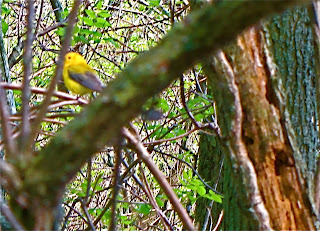
EXIT THROUGH THE GIFT SHOP, or how many removes from reality can dance on the head of a pin?
grade: B+
EXIT THROUGH THE GIFT SHOP is a documentary by “Banksy” and Shepard Fairey, two major street (or graffiti) artists. It’s a satire that reveals the work and trials of Thierry Guetta (Terry), a French immigrant to L.A., who tries to make a film about major street artists, while Banksy is making a film about Terry while Terry is making a film about . . . and so it goes.
If the movie has a purpose (or several), it is to raise questions about what art is, the role of megalomania and commercialism in the art world, and a profile of prominent street artists, those who are and those who wannabe. We also get a look at one man's magnificent obsession. All that evolves into the even larger question of what reality is and whether we can know it.
One thing at a time. Is “street art” art, shenanigan, or vandalism? Shall it be included in conversations about Rembrandt, Picasso and Hopper? Shall we use financial success and appeal to the masses to gauge the merit and therefore the dollar value of serious art, whether in the street or the salon?
In no time, I found myself wondering if Banksy, Shepard Fairey and Thierry Guetta were real people. Is this actually a documentary? Or is it a staged satire on the very kind of hip art it claims to be and, through that, an expose on popular taste, and, through those filters, the whole notion of an artistic canon?
From there, one wonders: if the film exposing fraud isn’t what it claims to be, isn’t “real,” is itself a fraud, then what is real? If two negatives make a positive, do two frauds make a reality? Is fraud the only reality? Is it Banksy or Rembrandt who is the greater fraud? Maybe it’s their handlers who are real? Or those who celebrate, fawn, and purchase their work?
If the Sistine Chapel has been restored (how many times?), where does Michelangelo leave off and the restorers’ art begin? Can we know Michelangelo? After all, there were all those highfalutin society women coming and going in Eliot’s great poem. “In the rooms the women come and go/Talking of Michelangelo.” What they're saying doesn't matter much; they are dilettantes.
So do we go to Banksy for a substantive take on the Renaissance? And what’s the value of Prufrock's verdict on anything? If we like Prufrock, it’s because he’s so much like us; he’s
that unreliable.
If we can’t trust Prufrock or those highly educated folks he critiques, how can we trust Banksy or Michelangelo? Artists are renowned for quirkiness, mental disorders, and rebellion. Shall we go to them for wisdom, for Truth?
I know! Let’s go to their handlers—agents, managers, editors, curators, art historians. They’ll know! And they’ll tell the
truth. Or science. We could ask science; it never changes its mind.
And if we can’t trust high-minded, rebellious, tortured artists to make a good-faith effort to replicate reality as they interpret it, then how can we trust anyone about anything? Speaking of anything, what can we trust to be the right take on . . . on what? Reality? We’re right back to
cogito ergo sum, aren’t we? I wonder whose dream I’m a part of.
As for EXIT THROUGH THE GIFT SHOP, how can I resist praising a movie that stirs up such questions and presents such unusual humans? I suppose I’m easily stirred by such things, and I like it when somebody makes monkeys of the trendy set. "I trend, therefore I am."
But aren't the street artists the trendiest of all?
Epistemology can become a hairsplitting affair that diminishes or eliminates the most important of human experiences, both suffering and joy. So I’m annoyed at EXIT THROUGH THE GIFT SHOP, even as I marvel at the ways it sucked me in and coerced me into thinking once again about all this reality business.
Marveling is not the same as respect or affection, however. I’m not sure the movie has a soul. Except for a broad compassion, I’m not sure I care about any of its characters, except for the wife and children (if that’s who they really are) of Terry, the obsessive megalomaniac.
In the end, the movie says “Gotcha.” And I reply, Big Fucking Deal. Who’s better off because you got me, if you got me, if there really was a movie, and I really was there, and the movie’s attitude really was one of superior, grinning, nihilistic satire?
Consider: people don’t honestly care much about Truth. They get a version at church or university and go home. People care very much about being made to feel a fool, and I think that’s what the movie’s up to. I wouldn’t be surprised if it’s this cynical sneering that street art itself is up to.
So, despite some intriguing moments and ideas in the movie, I do not feel enlightened or happy or good or wiser or more a part of the Brotherhood of Man because I saw EXIT THROUGH THE GIFT SHOP. It’s a sometimes intriguing and clever exercise, but it's always a disembodied, alienating intellectual game that doesn’t like or respect anybody or anything. Some budding intellectuals under the age of 30 might need to re-hash this stuff with hashish and exotic coffee. I don’t. Therefore, I am. Maybe.



















































